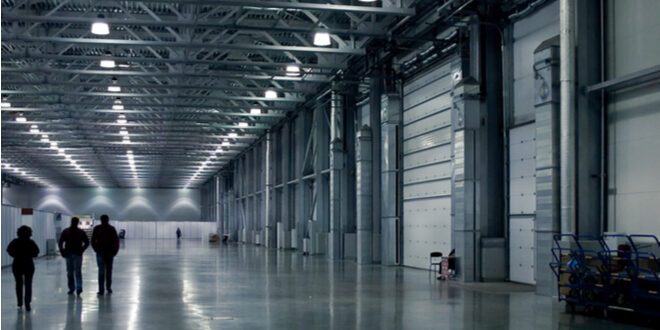A proposed 45-day moratorium on building logistics facilities would have given the city time to review, and possibly change, its regulations in that area, but the measure was rejected by the city council.
San Bernardino almost approved an ordinance that would have put in place a 45-day moratorium on building warehouses in the city.
Almost, but not quite.
On June 2, five members of the city council – Damon Alexander, Kimberly Calvin, Sandra Ibarra, Ben Reynoso and Theodore Sanchez – voted for the proposal, which would have allowed the city time to study potential negative impact logistics facilities have on the city.
The 45-day period could have been extended indefinitely, depending on how long it took to update the city’s warehouse-distribution policies and incorporate those changes into the city’s general plan, said Michael Huntley, San Bernardino’s director of economic and community development.
Because the moratorium was presented to the council as an urgency ordinance, six votes were needed for it to pass. One supporter of the proposal said he doesn’t expect the city to consider looking at its warehouse-distribution center policies anytime soon.
“It’s dead in the water,” Alexander said when asked whether he believed the moratorium, or any other provision regarding warehouse distribution facilities, might soon be brought back to the council. “In the years I’ve been on the council, I’ve tried to raise our development standards, whether it’s commercial, industrial or residential development. “That’s why I voted for the moratorium.”
Council members Juan Figueroa and Fred Shorett cast the only votes against the measure, enough to block it because it needed four-fifths of the vote for approval.
Logistics is one of the Inland Empire’s major industries and job providers, and over time much of that industry has landed in San Bernardino. During the past six years, the city has processed and approved 26 warehouse projects that combined cover approximately 9.6 million square feet, according to a staff report
But warehouse distribution facilities come with a price. Because many of the warehouses operate 24 hours every day of the year, those facilities often cause a general decline in a community’s quality of life, the report states.
“In the last 16 years, since the general plan was last updated, the city has seen a marked increase in warehouse development,” Huntley said. “As we’ve processed these projects we’ve identified a lot of issues that need to be addressed.”
“The 45 days would give staff time to start analyzing those issues.”
But not enough council members were persuaded, even though the staff report concluded that warehouse-distribution facilities have “detrimental impact on the city” that are not being addressed.
“I believe the city already has checks and balances in place if we get a logistics project that we don’t like,” Shorett said when asked to clarify his “no” vote. “The planning commission or the city council can change something they don’t like, or they can turn it down.
“I also don’t think you could get much done in 45 days.”
Inland Empire economist John Husing called even a temporary ban on logistics construction “the wrong message” to send to the business community, particularly from a city that is trying to change its reputation for being anti-business.
“I’m glad it died,” Husing said of the defeated moratorium. “Evidently, some of the city council in San Bernardino doesn’t recognize the one thing that will lift people up into the middle class. Not all of the council, but some of it.”
Such a moratorium would not be unprecedented.
Last month, Colton approved an ordinance very similar to the one San Bernardino rejected: a 45-day ban, but one that reportedly allows for an extension of up to one year. City staffers are meeting with business and property owners in order to get a sense of what changes need to be made, if any, to Colton’s polices regarding logistics construction.
Inland Empire cities are used to approving warehouse-distribution operations, and so they sometimes overlook the problems those facilities can cause, said the head of one of the Inland region’s leading environmental groups.
“We need a moratorium so we can come up with a set of guidelines,” said Alma Marquez, executive director of the Center for Community Action and Environmental Justice in Jurupa Valley. “We have enough trucks in our neighborhoods, and some of them idle for 20 of 30 minutes waiting to get into a warehouse, which isn’t healthy.
“The cities need to be held accountable for what they’re doing.”
Marquez, who spoke in favor of the moratorium during the council meeting, rejects the idea that her organization – which has battled the logistics industry for years, mostly unsuccessfully – is anti-business.
“Asking for a moratorium like the one proposed in San Bernardino doesn’t make you anti-business,” Marquez said. “We’re just asking for a new system. Warehouse-distribution centers cause problems, and no one has figured out how to solve those problems.”
 IE Business Daily Business news for the Inland Empire.
IE Business Daily Business news for the Inland Empire.


